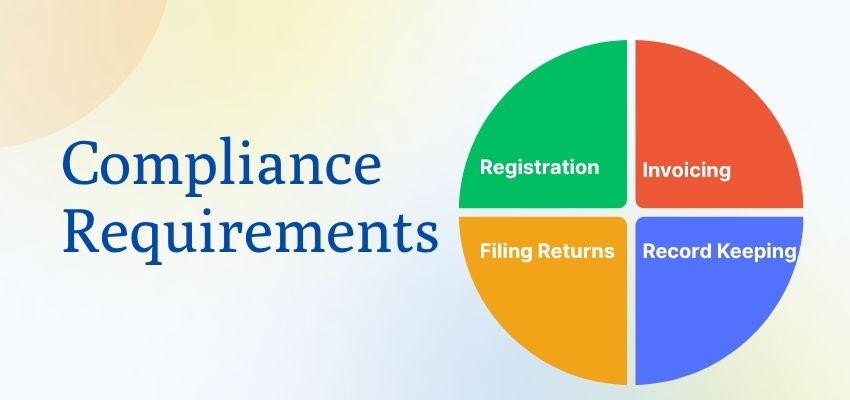GST on Intermediary Services: Complete Guide 2025
Posted By: Admin Published: 21-06-2025
The introduction of the Goods and Services Tax (GST) in India has significantly impacted various sectors, particularly the treatment of intermediary services. This guide provides a comprehensive overview of the GST framework concerning intermediary services, including definitions, compliance requirements, implications for businesses, and practical considerations for 2025.
Intermediary services are defined under the GST law as services provided by a person or entity that facilitates a transaction between two parties without being a party to the transaction. Examples include:
- Brokerage Services: Real estate agents and stockbrokers who facilitate transactions between buyers and sellers.
- Consultancy Services: Firms that connect businesses with potential clients or suppliers.
- Export-Import Services: Agents that assist businesses in international trade by handling documentation and logistics.
Legal Framework
The legal framework governing intermediary services under GST is primarily found in the Central Goods and Services Tax (CGST) Act. The definition of an intermediary is provided in Section 2(13) of the CGST Act, which states that it refers to a person who arranges or facilitates the supply of goods or services between two or more persons.
Standard GST Rate
As of 2025, the standard GST rate for services, including intermediary services, is 18%. This rate applies unless a specific exemption or a lower rate is provided in the GST law.
Place of Supply
The place of supply is critical in determining the applicability of GST. For intermediary services, the place of supply is generally considered to be the location of the intermediary. This means that if an intermediary based in India provides services to clients located outside India, the transaction may be classified as an export of services, which is subject to zero-rated GST.
Export of Services
To qualify as an export of services, the following conditions must be met:
- The supplier and recipient of the service must be in different countries.
- The place of supply must be outside India.
- The payment for the service must be received in convertible foreign exchange or in Indian rupees wherever permitted.
- The supplier and recipient must not be merely a branch or an office of the same entity.
Compliance Requirements

Recommended:
Step-by-Step Guide to GST Registration Process for Businesses
Registration
Intermediaries providing services must register for GST if their aggregate turnover exceeds the prescribed threshold limit. The threshold limit varies depending on the type of services and the location of the supplier.
Invoicing
Proper invoicing is essential for intermediaries. Invoices must include:
- The name and address of the supplier and recipient.
- The GST registration number of both parties.
- A clear description of the services provided.
- The applicable GST rate and amount.
Filing Returns
Intermediaries are required to file
GST returns regularly. This includes:
- GSTR-1: Details of outward supplies.
- GSTR-3B: Summary of outward and inward supplies along with tax liability.
- Annual Return: A comprehensive return summarizing all transactions for the financial year.
Record Keeping
Maintaining thorough records is crucial for compliance. Intermediaries should keep copies of all invoices, contracts, and correspondence related to the services provided. This documentation is essential for substantiating claims for Input Tax Credit (ITC) and for audits.
Eligibility for ITC
Intermediaries can claim Input Tax Credit (ITC) on inputs and input services used to provide intermediary services. To be eligible for ITC, the following conditions must be met:
- The goods or services must be used in the course of business.
- The tax charged on the inputs must be paid to the government.
- The intermediary must have a valid tax invoice.
Restrictions on ITC
Certain restrictions apply to the claiming of ITC, including:
- ITC cannot be claimed on goods and services used for personal consumption.
- ITC on certain specified goods and services is restricted, such as motor vehicles and food and beverages.
Impact of ITC on Cash Flow
Claiming ITC can significantly improve cash flow for intermediaries, reducing the overall tax burden. This is particularly important for businesses operating on thin margins.

Recommended: GST Slabs in India
Challenges and Issues
Classification of Services
Determining whether a service qualifies as an intermediary service can sometimes be challenging. Proper classification is essential to avoid disputes with tax authorities.
Documentation and Compliance
Maintaining accurate documentation is crucial for substantiating claims for ITC and ensuring compliance. This includes contracts, invoices, and payment receipts.
Cross-Border Transactions
Intermediaries dealing with foreign clients must understand the implications of cross-border transactions. Compliance with both Indian GST laws and the laws of the foreign jurisdiction is vital.
Changes in Regulations
The
GST landscape is continually evolving, with periodic changes in rules and regulations. Intermediaries must stay informed about these changes to ensure ongoing compliance.
Practical Considerations for Businesses

Recommended:
How to Reply to GST Notice Online: A Comprehensive Guide
Best Practices for Compliance
- Regular Training: Ensure that staff is trained on GST compliance and updates to the law.
- Consult Professionals: Engage with tax professionals to navigate complex GST issues.
- Use Technology: Implement accounting software that integrates GST compliance features to simplify the filing process.
Strategic Planning
Intermediaries should consider the following strategic approaches:
- Evaluate Pricing Models: Understand the impact of GST on pricing and adjust accordingly to maintain competitiveness.
- Optimize Service Offerings: Assess which services are most profitable under the GST regime and focus on those areas.
- Expand Market Reach: Explore opportunities in foreign markets where GST implications may differ.
Need AssistanceConclusion
The
GST framework for intermediary services is crucial for businesses operating in this space. Understanding the nuances of GST on intermediary services, compliance requirements, and best practices can aid in optimizing operations and ensuring regulatory adherence.
As we move into 2025, staying informed about changes in regulations and leveraging technology for compliance will be key to success.
For businesses involved in providing intermediary services, consulting with tax professionals can provide valuable insights and guidance.
If you have further questions or need assistance with GST on intermediary services, feel free to reach out to professionals who can help you navigate this complex landscape effectively.
FAQ
1. What are intermediary services under GST?
Intermediary services are those provided by a person who arranges or facilitates the supply of goods or services between two or more parties.
Yes, GST is applicable on intermediary services. The supplier of the service is liable to pay GST.
The standard GST rate for intermediary services is 18%.
The place of supply is generally the location of the supplier, unless specified otherwise by the GST laws.
Yes, intermediaries can claim ITC on inputs and input services used in providing intermediary services, subject to certain conditions.
Certain services may be exempt based on specific conditions; it's essential to check the latest
GST notifications for updates.
Intermediaries must file their
GST returns based on their turnover and comply with the prescribed timelines for GST filings.
F





